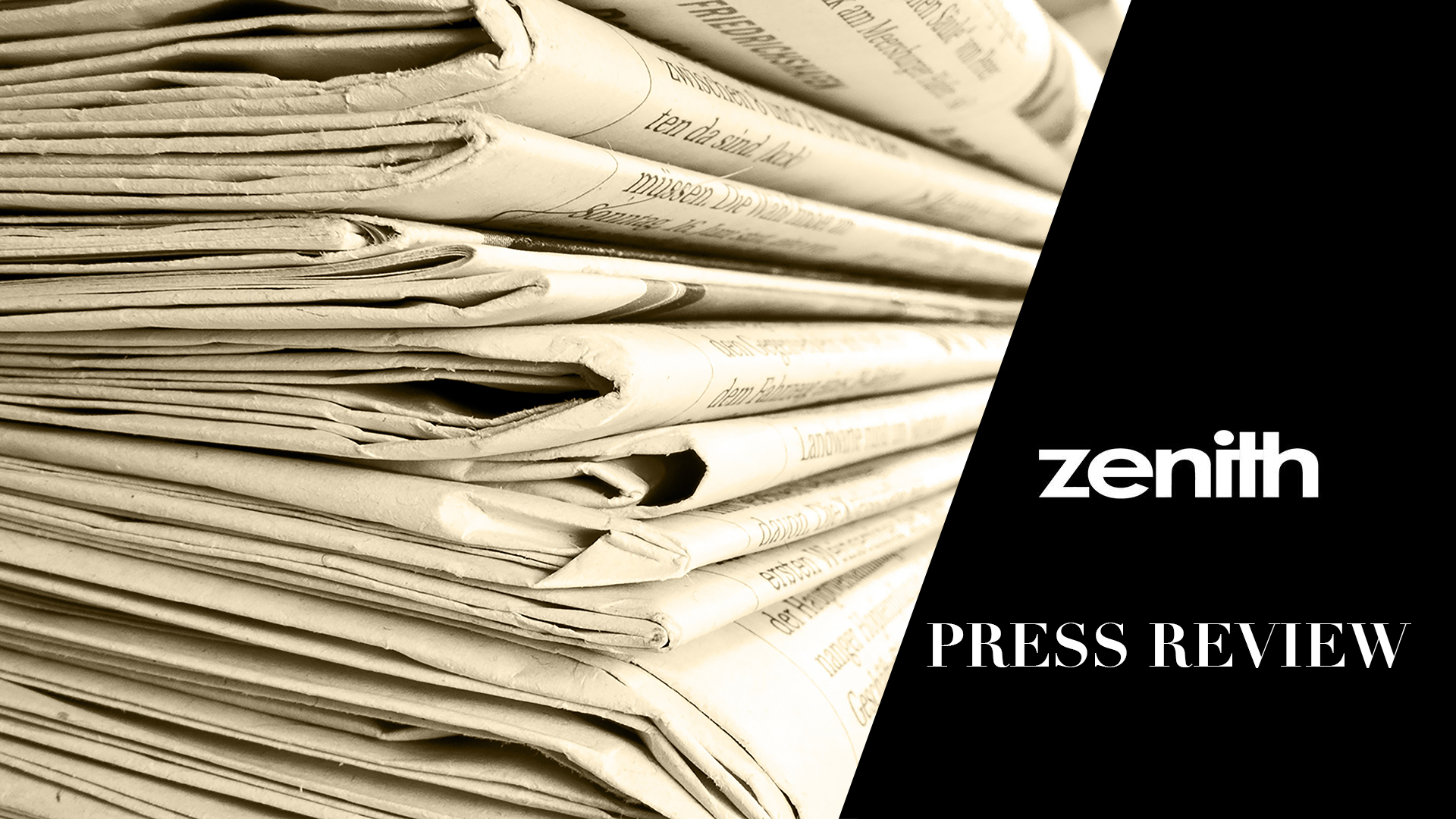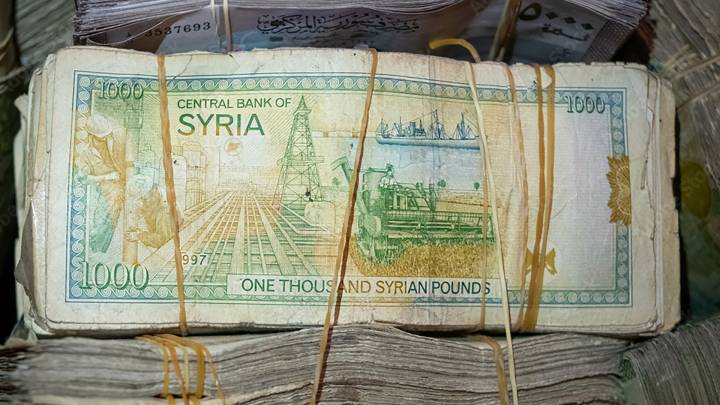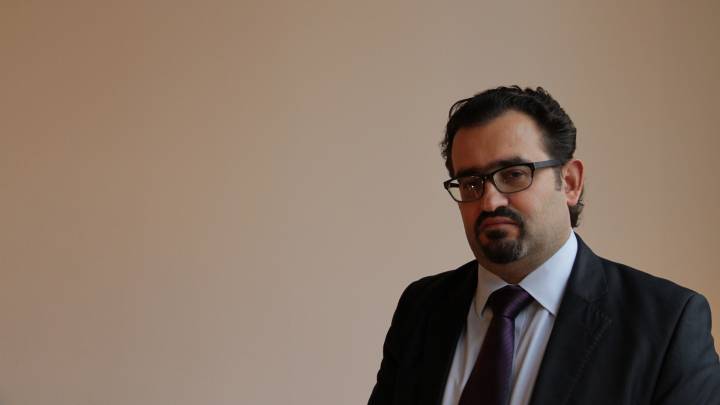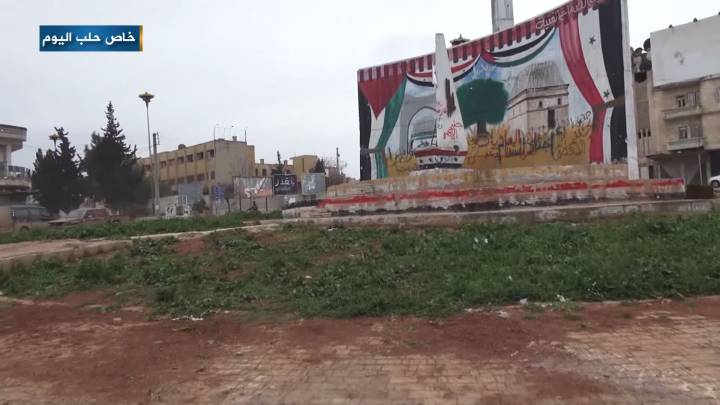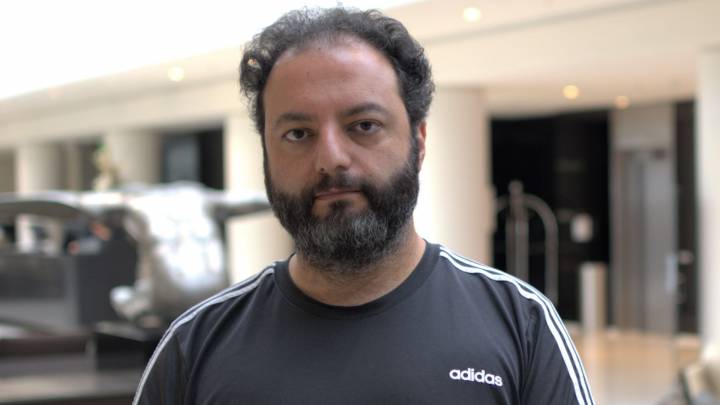Many consider Russia to be behind the latest round of regime infighting. But does a recent flurry of articles in Russian media criticising Assad really suggest that the Kremlin’s attitudes towards the Syrian president are cooling?
In mid-April, the Russian Federal Agency of News (RIA-FAN) published an article entitled “Corruption in the Syrian Government is Destroying the Country’s Economy.” Despite having been taken down from the site two days later, observers questioned RIA-FAN’s rationale in running such a critical piece in the first place especially amid intra-regime clashes.
Several Russian security analysts have characterised RIA-FAN as the mouthpiece of the infamous Russian businessman Yevgeny Prigozhin, who assumedly instructed the media outlet’s editors to adopt a more confrontational stance. These same analysts, many of whom spoke to zenith under the condition of anonymity, believe that the emergence of pieces critical of Syrian President Bashar al-Assad comes in the context of difficulties that Prigozhin has recently experienced regarding payments for his myriad of security services his companies provide in Syria. RIA-FAN is one of four pro-Kremlin outlets which come under Prigozhin’s Patriot media group. The outlet itself apparently grew out of the infamous St Petersburg-based Internet Research Agency often referred to as a ‘troll factory’.
Prigozhin is considered to be a powerful oligarch with close links to the Kremlin. Since founding a hot dog business with his stepfather in the early 1990s, Prigozhin's network of catering and convenience stores has made him one of Russia’s richest figures, in no small part thanks to being awarded various lucrative government contracts. His moniker, ‘Putin’s Chef’ originates from serving the Russian president personally at his St Petersburg New Island restaurant in 2003.
Prigozhin now boosts a diverse portfolio of interests from plans to crush recent protests in Sudan, mining interests in the Central African Republic, to being linked to the paramilitary Russian mercenary outfit, the Wagner Group, which since its initial outing in eastern Ukraine has been assisting the overstretched forces of Syrian President Bashar al-Assad. More importantly, however, Prigozhin controls the US sanctioned company Evro Polis Ltd., which according to agreements signed with Syrian authorities in 2016 and 2018 is reported to be laying claims to a quarter of all oil and gas extracted from Syrian territories which have been recaptured by the regime’s forces.
The calculation was that as long as Prigozhin’s business partners were able to uphold their part of the bargain, the oligarch would not meddle in the corrupt practices of Assad’s domestic clients.
The critical Russian newspaper Novaya Gazeta discovered that the Syrian authorities had contracted Evro Polis to conduct military operations on Assad’s behalf in exchange for 25% of the oil and gas production in areas which were returned to regime control. In April 2020 Novaya Gazeta also found that EuroPolis controls the recently recaptured Shaer gas field located in the Homs governorate. The investigative journalist Denis Korotkov, who worked on the Novaya Gazeta report, even referred to Evro Polis as the “screen of the formally non-existent Wagner Group.”
Prigozhin’s wide range of interests in Syria enabled him to establish commercial relationships with many within the country’s business elite. The calculation was that as long as Prigozhin’s business partners were able to uphold their part of the bargain, the oligarch would not meddle in the corrupt practices of Assad’s domestic clients. As soon as intra-regime tensions started to hinder his partners’ ability to uphold their side of the deals, Prigozhin signalled his disquiet.
Nikolay Sukhov, a senior research fellow at the Institute of Oriental Studies of the Russian Academy of Sciences (RAS), has developed a deep understanding of power dynamics in Damascus: “Local observers in Syria assumed that Russian mafia-like structures were clashing with their Syrian counterparts. They thought that corrupt figures in Russia were trying to solve their own problems by loudly denouncing the corruption in Assad’s circle.” Since the end of April 2020, RIA-FAN has interestingly enough completely reversed its narrative, even praising Assad for his efforts in managing the coronavirus crisis.
One article accused Syrian Prime Minister Imad Khamis and his associates of directing pocketing oil and gas revenues.
Other ‘alternative’ Russian media outlets have recently echoed this criticism of the Assad regime. On 13 April, Pravda.ru, an online offshoot of the newspaper of the same name headed by the pro-regime journalist Vadim Gorshenin, ran an article condemning the Syria government’s nepotism, which had left thousands of households without electricity.” The next day, the article’s author Petr Deryabin published another piece entitled “The Bashar Assad Clan – How the Family of the Syrian President Ended Up Mired in Corruption,” which gained significant traction of several online forums.
The article’s central argument was that the Syrian economy has been significantly undermined by corruption with government circles, which Deryabin blamed on the shadowy schemes ran by Assad’s immediate family, many of which involved profiting at the expense of ordinary citizens. While shining a light on the networks of corruption that criss-cross the highest levels of the Syrian regime, Deryabin’s article also accused Syrian Prime Minister Imad Khamis and his associates of directing pocketing oil and gas revenues.
Another media outlet which has added its voice to the intensifying criticism of the Syrian regime is the online publication Svobodnaya Pressa (Free Press), which specialises in reporting on socio-political issues. One of their journalists, Zaur Karaev, penned an article entitled “The Kremlin Plans to Remove Assad,” which was published on 25 April. The piece discusses at length various theories behind the recent cooling in relations between Putin and Assad. Karaev writes that seemingly one of the reasons for Russian dissatisfaction were Assad’s ties to the UAE.
In an interview, which has been subsequently removed from RT platforms, Tlass strongly criticised the concentration of wealth in the hands of Assad’s immediate family.
He also points to Assad’s desire to re-establish himself as an independent politician as an important factor. If Assad were to achieve this, it may be disastrous for Russia’s geopolitical strategy in the entire region. The article concludes by saying that even if Moscow decided to remove Assad from power, the move would probably have failed, even if it were pursued through national elections.
On 4 May the government-funded television network RT aired an interview with Firas Tlass, a prominent Syrian business tycoon and son of the former long-serving Minister of Defence Mustafa Tlass. In the interview, which has been subsequently removed from RT platforms, Tlass strongly criticised the concentration of wealth in the hands of Assad’s immediate family. He also speculated that the current rift among the country’s elites could result in a fracturing of loyalties within the armed forces, and that Russia could act a guarantor of Syria’s stability and sovereignty in the future.
Kommersant, Russia’s leading liberal business broadsheet, has also reported on speculation that the Kremlin has endorsed the latest anti-corruption measures against several Syrian businesspeople, including Rami Makhlouf, Assad’s maternal cousin and childhood friend who is often described as Syria’s richest person. These theories have been rejected by Kirill Semenov, a non-resident expert at the diplomatic think tank founded Russian International Affairs Council (RIAC), who was quoted in the piece. Semenov, who specialises in the conflicts in Yemen, Libya and Syria, stresses that it is not Russia which is behind the “raids on Makhlouf” but rather Assad himself, who: “needs money at all costs. Otherwise , his regime will collapse. And why not squeeze money out of those who can still pay.”
In view of Aboud’s ties to the Syrian president and the security establishment, his ill-timed statements were perceived as an unnecessary provocation.
An even more curious episode was covered by Saudi-funded Al Arabiya. On 8 May, the network reported the dramatic outburst of member of the Syrian parliament and staunch Assad loyalist, Khaled al-Aboud. Aboud took to Facebook to launch a fierce tirade against Putin following several leaks that Russia was trying to unseat Assad. He claimed that such a stance gravely endangered Russo-Syrian relations, arguing that it was Putin who needed Assad to protect Russia interest, not the other way around. “What if Assad got angry with Putin?” Aboud threatened: “What if Assad were to drown Putin in the fire of the Latakia mountains?”
In view of Aboud’s ties to the Syrian president and the security establishment, these ill-timed statements were perceived as an unnecessary provocation. On 9 May, the RIA-FAN ran an article declaring: “Assad’s cooperation with Russia restores order in Syria.” The article quoted Konstantin Sokolov, a Russian expert from the non-governmental Russian Academy of Natural Sciences, who reiterated the multiple benefits for the Syrian regime. Given the article’s timing and sentiment, it seems as though the Kremlin would be willing to overlook Aboud’s inflammatory statements.
On 4 May, the London-based Middle East Monitor claimed that Russia, Turkey, Iran had all agreed to get rid of Assad, referencing an alleged RIAC report. However, Ruslan Mamedov, a RIAC project manager, rejected the existence of any such publication, on the contrary, he believes there will be no significant change of Russia’s policies towards Syria in the immediate future. More critical Syria analysts in Russia have been warning about the danger posed by regime infighting within the country since at least 2017.
Routine corruption, as well as malpractices perpetrated by the country’s various security agencies, has become an everyday reality for Syrian citizens.
In a report published on 17 April, the RIAC vice-president Alexander Aksenyonok, who previously served as Russia’s ambassador to Algeria, refrained from calling for regime change. Instead he emphasised that the scale of the economic challenges faced by Syria is more acute than at any other stage of the conflict. Aksenyonok concluded his report by stating that the war in Syria had given rise to shadowy organisations with no interest in a peaceful resolution of the conflict, which would continue to gather in strength if the Syrian government does not take decisive action.
In an article for the Institute of Oriental Studies, Sukhov warns that the illicit Syrian economy was booming, especially since the official closure of Syria’s borders with its neighbours which has allowed smuggling to thrive. He wrote that feelings of injustice though hidden beneath the surface are shared by large swathes of the Syrian population – a potential ticking time bomb.
Sukhov mostly agrees with Aksenyonok’s assessment that even in areas which are nominally under government control, the authorities exercise little influence over evolving informal networks. Sukhov believes that this routine corruption, as well as malpractices perpetrated by the country’s various security agencies, has become an everyday reality for Syrian citizens. This new system of regional monopolies has, according to Sukhov, become almost impossible for outsiders to penetrate. Both Sukhov and Aysenyonok seem more preoccupied with Syria’s endemic corruption and chronic nepotism endangering the Kremlin’s interests in the country, rather than entertaining regime change conspiracies.
Russia's authorities presumedly allowed its oligarchs to settle their accounts a free hand to send a message.
In November 2015, the Russian news agency RBC Daily announced that operations in Syria were costing the Russian Ministry of Defence at least $2.5 million daily. Russian authorities have so far consciously avoided releasing any clear estimates of their engagement in Syria, but Elisabeth Tsurkov believes they want a return on their investment. Tsurkov, a fellow at the Foreign Policy Research Institute, has indicated that the flourishing war economy has severely obstructed the flow of foreign investment.
The Kremlin has mostly chosen to ignore the rhetorical tit-for-tat regarding Syria. Bearing in mind the vested interests of prominent business figures, Russia's authorities presumedly allowed its oligarchs to settle their accounts a free hand to send a message. The Kremlin may however not have expected initially that these companies would defend their interests publicly through their own media channels. As Sukhov concludes the administration was now preoccupied with fighting the spread of the coronavirus: “Putin is currently not absorbed by Syria, and the press-secretary is now recovering in hospital.”
Veteran war profiteers of Prigozhyn’s ilk, however, have no intention of standing idly by while their money-making schemes fail to come to fruition due to intra-elite squabbling. When Russia’s usually risk-tolerant magnates choose to speak out publicly, it is clear that Syria’s state corruption and lawlessness have entered uncharted territory.
Inna Rudolf is currently a research fellow at the London-based International Centre for the Study of Radicalisation (ICSR). She is also an associate fellow in the German Council on Foreign Relations’s Middle East and North Africa Programme, and a founder at Candid Foundation. Rudolf’s research focuses on popular mobilisation tactics, security sector reform and Islamist non-state actors in Iraq.
